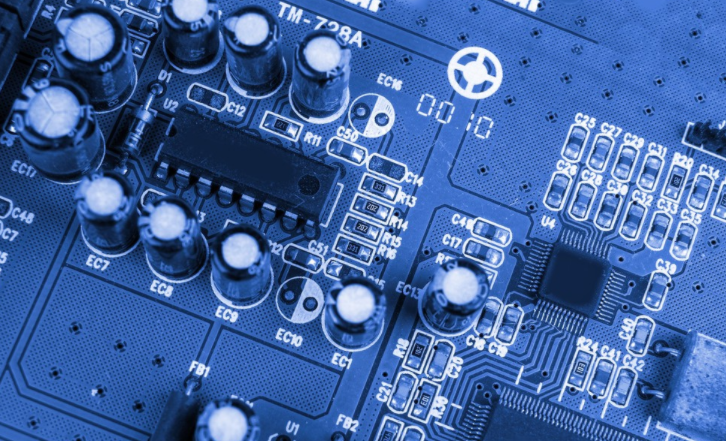Building 6, Zone 3, Yuekang Road,Bao'an District, Shenzhen, China
+86-13410863085Mon.-Sat.08:00-20:00

SMT chip or lead component welding and solder paste storage
Soldering method SMT chip module and lead module
SMT chip and intermediate components are especially small and light, and chip components are easier to weld than lead components. The SMD component also has a very important advantage, that is, it improves the stability and reliability of the circuit, that is, it improves the success rate of production. This is because SMD components have no leads, which reduces stray electric and magnetic fields, especially in high-frequency analog circuits and high-speed digital circuits.
The method of welding SMT wafer assembly is to place the assembly on the bonding pad, then apply the adjusted solder paste on the contact between the assembly pin and the bonding pad (be careful not to apply too much to prevent short circuit), and then use a 20W internal heating electric soldering iron to heat the joint between the bonding pad and the SMT wafer assembly (the temperature should be 220~230 ℃). After the solder is melted, the electric iron can be removed, and the welding is completed after the solder is solidified. After welding, you can use tweezers to clamp the clips of the welded patch assembly to see if there is any looseness. If there is no looseness (it should be very firm), the welding is good.
 SMT lead assembly welding method: when welding all pins, solder should be added to the tip of the soldering iron, and all pins should be coated with flux to keep the pins wet Touch the end of each pin of the chip with the tip of the soldering iron until you see solder flowing into the pin When welding, keep the tip of the soldering iron parallel to the welding pin to prevent overlapping due to excessive welding
SMT lead assembly welding method: when welding all pins, solder should be added to the tip of the soldering iron, and all pins should be coated with flux to keep the pins wet Touch the end of each pin of the chip with the tip of the soldering iron until you see solder flowing into the pin When welding, keep the tip of the soldering iron parallel to the welding pin to prevent overlapping due to excessive welding
After all pins are welded, soak all pins with flux to clean solder. Remove excess solder where needed to eliminate any shorts and overlaps. Finally, use tweezers to check whether there is false welding. After the inspection, remove the flux from the circuit board, soak the hard brush with alcohol, and carefully wipe along the pin direction until the flux disappears.
Use and storage of solder paste on PCB
Solder paste is an indispensable auxiliary material in PCB production. Its function is to melt the chip adhesive, so that the surface mounted components and PCB board are firmly bonded together, which has a great impact on the power efficiency of the circuit board. How to use and store solder paste for PCB? Let's understand together.
The most commonly used solder paste coating technology for PCB manufacturers is steel plate or screen printing. In addition, other relevant technologies have been adopted, including dispensing method, point-to-point transfer method, roller coating method, etc.
1. The practice of steel plate printing originates from the concept of screen printing. Compared with screen printing, the use of steel plate printing can accurately control the amount of solder paste coating, and is suitable for assembly printing of fine pitch parts.
2. The printed steel plate is generally made of thin metal materials, and the pattern of the metal opening matches the bonding pad on the circuit board that needs to be coated with solder paste. Before printing, align the steel plate with the circuit board, then apply the solder paste on the whole steel plate with a scraper, and transfer the solder paste through the opening of the steel plate to the required area. Finally, separate the circuit board from the steel plate, and leave the solder paste on the corresponding pad.
3. Dispensing and coating technology is to press the solder paste library and squeeze the solder paste through the needle to perform fixed-point and quantitative coating operations. The working principles and design methods of the distribution system are very diverse. Generally speaking, as long as the system is used to confirm that it can meet the stable, fast and appropriate capacity supply capacity required by applications, the system can become the choice of the system. Gluing is a widely used technology. It can be applied to uneven surfaces. At the same time, it can be programmed to perform random coating operations with uncertain points and non quantitative quantities. However, because the working speed is slower than printing, it is usually used for parts manufacturing or heavy work.
4. For small parts with large spacing, the point-to-point transmission method is a good choice. It can move the solder paste to the desired position. Using this technology, a group of pins are installed on the fixed plate, and the positions of the pin points and the pads to be welded correspond to each other. During the operation, a certain thickness of solder paste is stacked on the flat bottom container, and then a group of pins are stably immersed in the solder paste, and then lifted. The solder paste attached to the tip will remain on the top of the pin. These pins with solder paste then transfer the solder paste to the pad and repeat the next loop.
Storage method of solder paste:
PCB solder paste is very sensitive to heat, air and humidity in the exposed environment Heat will cause reaction between flux and tin powder, and also cause separation of flux and tin powder If exposed to air or humidity, it can cause dryness, oxidation, moisture absorption and other problems It is recommended to store in a refrigerated environment Before exposure to air and before opening, the temperature should be balanced with the ambient temperature to avoid condensation The time required for reheating depends on the container size and storage temperature The time required for thawing varies from one hour to several hours
Soldering method SMT chip module and lead module
SMT chip and intermediate components are especially small and light, and chip components are easier to weld than lead components. The SMD component also has a very important advantage, that is, it improves the stability and reliability of the circuit, that is, it improves the success rate of production. This is because SMD components have no leads, which reduces stray electric and magnetic fields, especially in high-frequency analog circuits and high-speed digital circuits.
The method of welding SMT wafer assembly is to place the assembly on the bonding pad, then apply the adjusted solder paste on the contact between the assembly pin and the bonding pad (be careful not to apply too much to prevent short circuit), and then use a 20W internal heating electric soldering iron to heat the joint between the bonding pad and the SMT wafer assembly (the temperature should be 220~230 ℃). After the solder is melted, the electric iron can be removed, and the welding is completed after the solder is solidified. After welding, you can use tweezers to clamp the clips of the welded patch assembly to see if there is any looseness. If there is no looseness (it should be very firm), the welding is good.
 SMT lead assembly welding method: when welding all pins, solder should be added to the tip of the soldering iron, and all pins should be coated with flux to keep the pins wet Touch the end of each pin of the chip with the tip of the soldering iron until you see solder flowing into the pin When welding, keep the tip of the soldering iron parallel to the welding pin to prevent overlapping due to excessive welding
SMT lead assembly welding method: when welding all pins, solder should be added to the tip of the soldering iron, and all pins should be coated with flux to keep the pins wet Touch the end of each pin of the chip with the tip of the soldering iron until you see solder flowing into the pin When welding, keep the tip of the soldering iron parallel to the welding pin to prevent overlapping due to excessive weldingAfter all pins are welded, soak all pins with flux to clean solder. Remove excess solder where needed to eliminate any shorts and overlaps. Finally, use tweezers to check whether there is false welding. After the inspection, remove the flux from the circuit board, soak the hard brush with alcohol, and carefully wipe along the pin direction until the flux disappears.
Use and storage of solder paste on PCB
Solder paste is an indispensable auxiliary material in PCB production. Its function is to melt the chip adhesive, so that the surface mounted components and PCB board are firmly bonded together, which has a great impact on the power efficiency of the circuit board. How to use and store solder paste for PCB? Let's understand together.
The most commonly used solder paste coating technology for PCB manufacturers is steel plate or screen printing. In addition, other relevant technologies have been adopted, including dispensing method, point-to-point transfer method, roller coating method, etc.
1. The practice of steel plate printing originates from the concept of screen printing. Compared with screen printing, the use of steel plate printing can accurately control the amount of solder paste coating, and is suitable for assembly printing of fine pitch parts.
2. The printed steel plate is generally made of thin metal materials, and the pattern of the metal opening matches the bonding pad on the circuit board that needs to be coated with solder paste. Before printing, align the steel plate with the circuit board, then apply the solder paste on the whole steel plate with a scraper, and transfer the solder paste through the opening of the steel plate to the required area. Finally, separate the circuit board from the steel plate, and leave the solder paste on the corresponding pad.
3. Dispensing and coating technology is to press the solder paste library and squeeze the solder paste through the needle to perform fixed-point and quantitative coating operations. The working principles and design methods of the distribution system are very diverse. Generally speaking, as long as the system is used to confirm that it can meet the stable, fast and appropriate capacity supply capacity required by applications, the system can become the choice of the system. Gluing is a widely used technology. It can be applied to uneven surfaces. At the same time, it can be programmed to perform random coating operations with uncertain points and non quantitative quantities. However, because the working speed is slower than printing, it is usually used for parts manufacturing or heavy work.
4. For small parts with large spacing, the point-to-point transmission method is a good choice. It can move the solder paste to the desired position. Using this technology, a group of pins are installed on the fixed plate, and the positions of the pin points and the pads to be welded correspond to each other. During the operation, a certain thickness of solder paste is stacked on the flat bottom container, and then a group of pins are stably immersed in the solder paste, and then lifted. The solder paste attached to the tip will remain on the top of the pin. These pins with solder paste then transfer the solder paste to the pad and repeat the next loop.
Storage method of solder paste:
PCB solder paste is very sensitive to heat, air and humidity in the exposed environment Heat will cause reaction between flux and tin powder, and also cause separation of flux and tin powder If exposed to air or humidity, it can cause dryness, oxidation, moisture absorption and other problems It is recommended to store in a refrigerated environment Before exposure to air and before opening, the temperature should be balanced with the ambient temperature to avoid condensation The time required for reheating depends on the container size and storage temperature The time required for thawing varies from one hour to several hours
Just upload Gerber files, BOM files and design files, and the KINGFORD team will provide a complete quotation within 24h.







